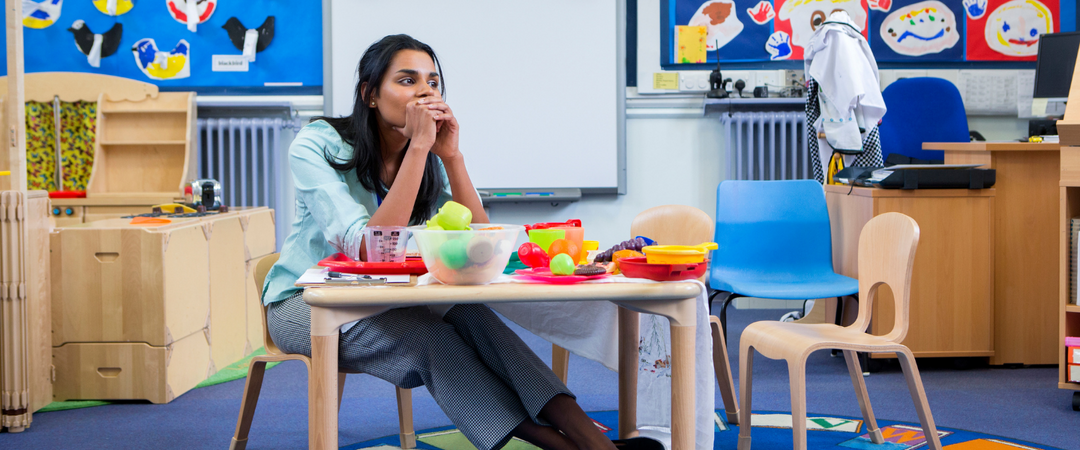Let’s cut straight to the chase. This year has been hard. Not just navigating a new reading curriculum hard, adjusting to a new administrator hard, or even dealing with a few needy parents hard. This year, for many educators, has been utterly exhausting, out of control, a five-alarm level of burnout!
To be crystal clear, this unprecedented burnout is not your fault. The system of education has continued to hold teachers to often unrealistic expectations, encouraging self-sacrifice, and demanding overwork. And with the impossible challenges of pandemic teaching, educators have been stretched so thin, many to the point of breaking.
As the school year winds down you may be pondering your next step. Should I leave the profession altogether? Find a way to serve students outside of the demands of the classroom? Maybe what’s needed are some concrete strategies to fortify yourself against burnout; specific action steps to create boundaries and make this profession you love more sustainable.
Whether you ultimately choose to stay or go, the strategies below can help you tap into your resiliency and start the new school year strong.
“True self-care is the hard work of creating boundaries, evaluating relationships, and taking steps to shift from the way things are to the way things can be.”
— Alexis Shepard
1. Reflect on what led you to become an educator in the first place.
What initially drew you to teaching? Sometimes described as a calling, or inner impulse, teaching is the type of career that becomes who you are; your identity is, literally, “teacher.” But why do you teach? Go back to the early days and recall what it was that brought joy, fulfillment, drive, and satisfaction. What are the parts of teaching you still love, despite the challenges?
2. Evaluate the challenges you’re facing
It may seem silly, but writing down what brings you joy and what creates distress can be cathartic. Get some paper and write down your responses to the following. You just might gain some insight that will help guide you in setting necessary boundaries and determining your needs for sustainability.
- What specific factors are making your current role challenging, unmanageable, or downright miserable?
- In what ways have the challenges in your current role affected your physical, mental, or emotional health?
- In what ways could you shift your thinking in order to build a sustainable future in the classroom?
3. Explore ways to prioritize and deprioritize your workload
Still carting around that bag of papers to be graded or searching the web for the perfect memes to add to your lesson? Ask yourself, “What would happen if I didn’t do this?” If the answer is, nothing of consequence, then maybe it’s just not worth doing in the first place. In her Truth for Teachers podcast, blogger and productivity expert Angela Watson outlines 7 ways to prioritize teaching tasks when EVERYTHING seems urgent. She suggests strategies such as distinguishing between the urgent and the important, and figuring out the most important task of the day and doing it first, among others. Listen (or read) and take notes to help you reprioritize your work tasks for better balance.
4. Identify strategies to manage your time
Once you’ve got your priorities straight, you can focus on making the most of the time you have for work tasks. First, take some time to understand your personal work style and the unique challenges you experience. Ask yourself, “What are your biggest hindrances to productivity?” “What distractions would you like to eliminate?” Then read The “Big 5” tips for teacher productivity to reduce overwhelm from Truth for Teachers podcast to learn how one teacher maximizes productivity in her work day. Need more strategies? Try some of these:






